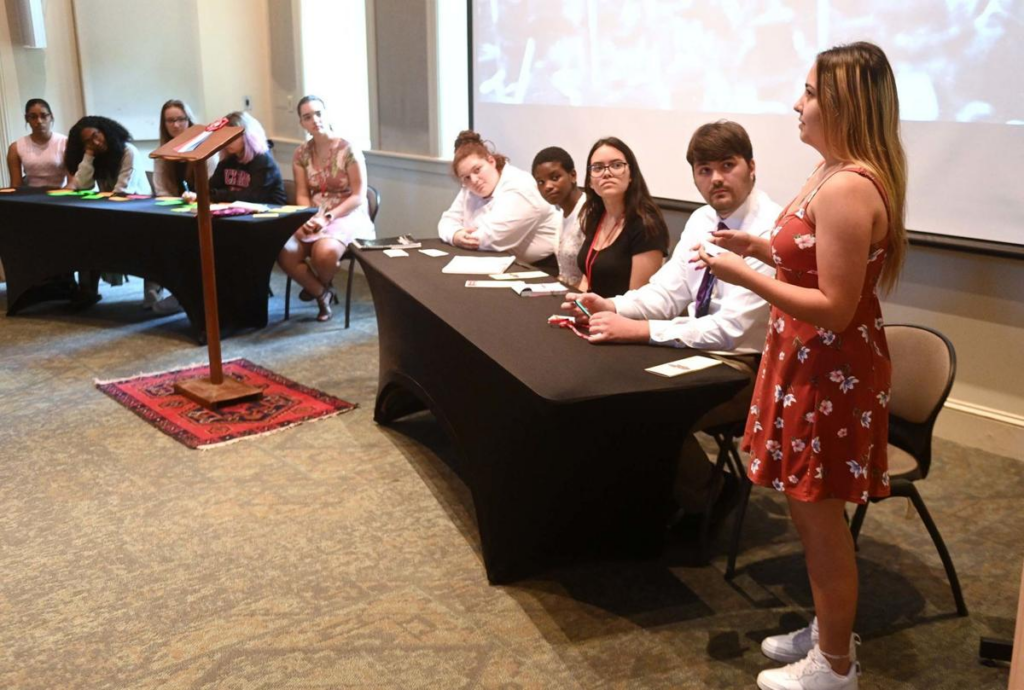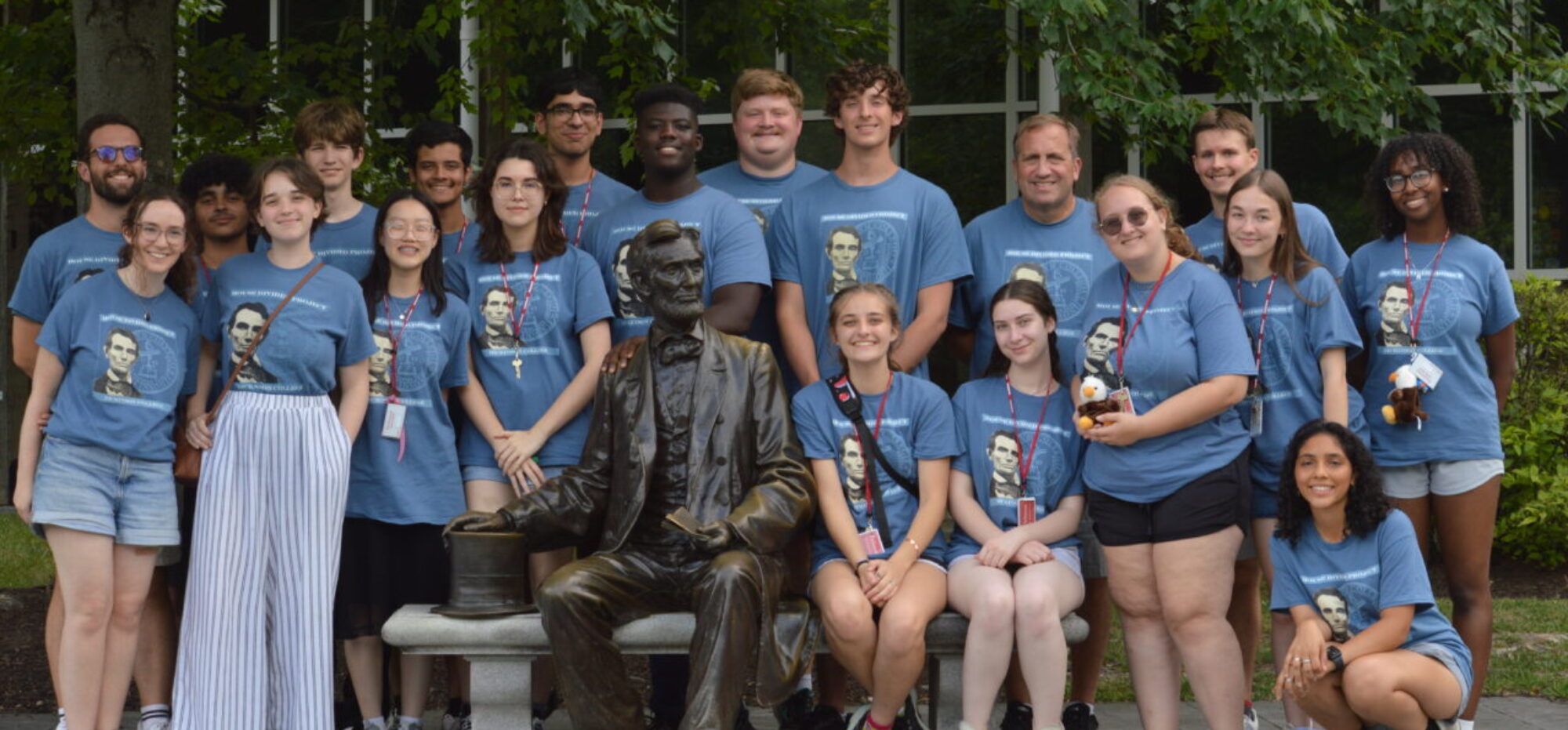2025 Parliamentary-Style Debate: Team Lincoln vs. Team Douglass
Friday, July 25, 2025 (10am to 1130am)
Stern 102
Model debate
Tuesday 7/22: RESOLVED: That there were too many compromises over equality after the Civil War that were unnecessary for the continuation of American democracy.
- Mealy (Affirmative)
- Pinsker (Negative)
Team Lincoln (Henry Booth, coach) vs. Team Douglass (Sarah Mash, coach)
RESOLVED: That Frederick Douglass and the radical antislavery forces were right. The best way to defeat slavery in America would have been through more relentless confrontation and an unyielding commitment to both freedom and equality.
Coin Toss for deciding teams: Monday, July 21, 2025 following seminar
Teams: JUDGES: Various alums of the seminar
TEAM DOUGLASS will open and close the debate

TEAM LINCOLN: Ada, Mark, Hasset, Sasha, Mia, Sam, Chelsea
TEAM DOUGLASS: Aleyna, Muhammed, Jackson, Toma, Dominic, Kyleigh, Sabine
FORMAT:
There will be four speakers on each team. Each speaker gets 3 minutes. The teams will alternate, starting with Team Douglass arguing FOR the resolution. Team Lincoln then argues against. Each team much decide the order of its speakers in advance.
Each team will also designate a questioner for each speaker’s slot who will sit in the front rows. There will be three designated questioners on each team. Each questioner has the right to stand and question the designated speaker for up to 3 questions per speech. Speakers MUST yield the floor to at least ONE question (if asked). If no question is asked during the three-minute speech, then the questioner MUST ask at least one question at the end of the speech. All questions should be short, direct, and relevant to whatever the speaker was commenting on at the time. The 3-minute clock stops during the Q&A.
Any debater who believes there has been a violation of rules (regarding time limits, out-of-order questions, disruptive behavior, etc.) may rise and announce a point of order. The parliamentarian will then hear the point and make a ruling. The 3-minute clock stops during such points of order.
After all four speakers for each side have delivered their speeches and following the final questions, each team will then have 5 minutes to quietly prepare a plan for rebuttal. Each team will then designate one speaker and this closing speaker will then have 4 minutes to summarize the entire general debate and to directly rebut any key points. Final speakers may NOT introduce new arguments at this stage, but can respond to any previous discussions. TEAM LINCOLN will lead the closing arguments and TEAM DOUGLASS will finish them. There will be no questions allowed during the rebuttal period.
Following the arguments, the panel of judges composed will consult and declare a winner. Good luck!
Check out the coverage from the 2021 summer debate at the Carlisle Sentinel
Featured secondary source for this debate:
James Oakes, The Radical and the Republican: Frederick Douglass, Abraham Lincoln, and the Triumph of Antislavery Politics (New York: W.W. Norton, 2007)
RECOMMENDED DOCUMENTS
Team Lincoln
- Lincoln’s private letters on the sectional crisis (1841, 1855)
- Lincoln’s “House Divided” speech (1858)
- Lincoln, Autobiographical Sketch (1859)
- Lincoln’s First Inaugural (1861)
- Lincoln’s Gettysburg Address (1863)
- Lincoln, Blind Memorandum (1864)
- Lincoln’s Second Inaugural (1865)
Team Douglass
- Frederick Douglass, Narrative (1845)
- Frederick Douglass’s “Fifth of July” speech (1852)
- Selections from Frederick Douglass editorials (1860-61)
- Douglass’s “Men of Color, To Arms” (1863)
- Douglass, Mission of the War (1864)
- Douglass, Emancipation Memorial speech (1876)
- Douglass on Lincoln’s Second Inaugural (1881)
